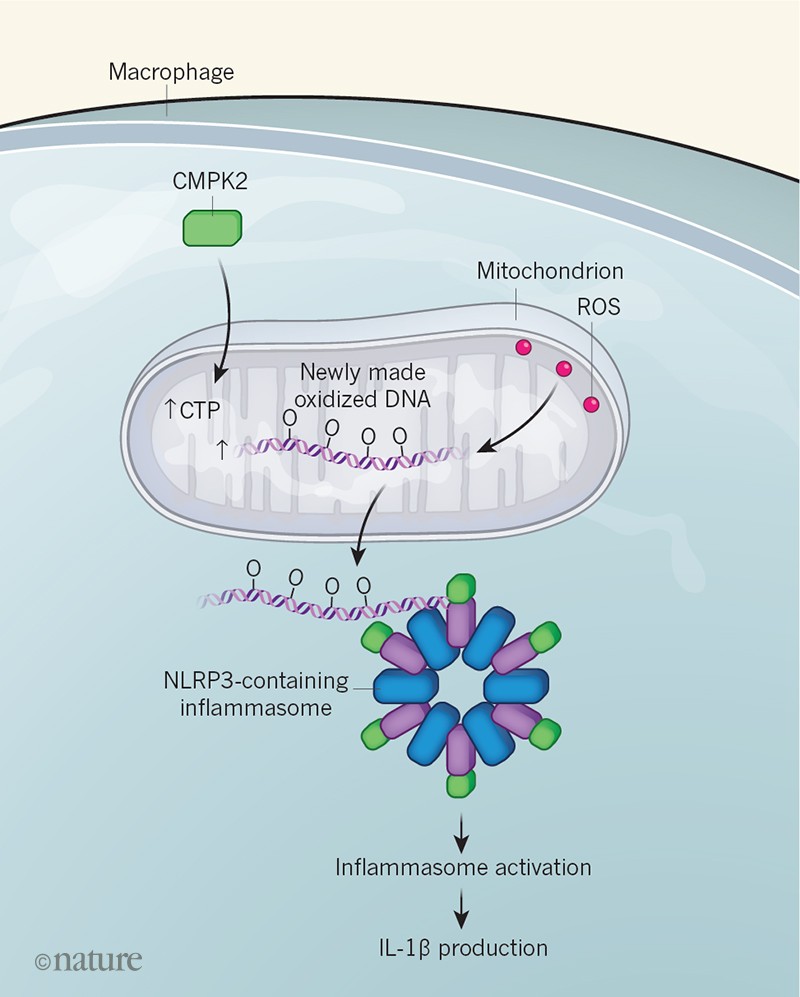This is a very informative article and I think it ties into the biochemical processes of ME/CFS very well. Thank you for posting it.
I have been reading about how mitochondria can cause inflammation for a few months now. My feeling is the inflammation from the dysfunctional mitochondria is playing a big part in ME/CFS symptoms.
Here are a couple more quotes from the paper that jumped out at me-
I think this first quote is referring to why oxidized mitochondrial DNA triggers the cytokine IL-1B and inflammation.
This finding of yet another fascinating link between mitochondria and inflammatory signalling in the innate immune system might reflect the organelle’s early evolutionary origins as a bacterial cell. This inherent otherness could give mitochondria a head start in being recognized as foreign by the innate immune system.
Mitochondria can regulate how immune cells respond to infection and tissue damage.
For example, these organelles can produce pro- or anti-inflammatory signals by altering the levels of metabolites produced in the Krebs cycle
2,
3,
or by changing the level of production of reactive oxygen species (ROS)4,
5.
More and more examples are being found of mitochondrial functions being repurposed in unexpected ways
to contribute to inflammatory signalling2–
5.
This image, as I understand it, shows Reactive oxygen species (ROS) oxidizing mitochondrial DNA and the oxidized mitochondrial DNA triggers inflammasome activation, which causes an increase in Interleukin 1B (IL-1B). Which is a strong innate immune system cytokine.
Something else I find really interesting in the article is that they use lipopolysacchrides (LPS) to cause the ROS and trigger the inflammasome and IL-1B.

